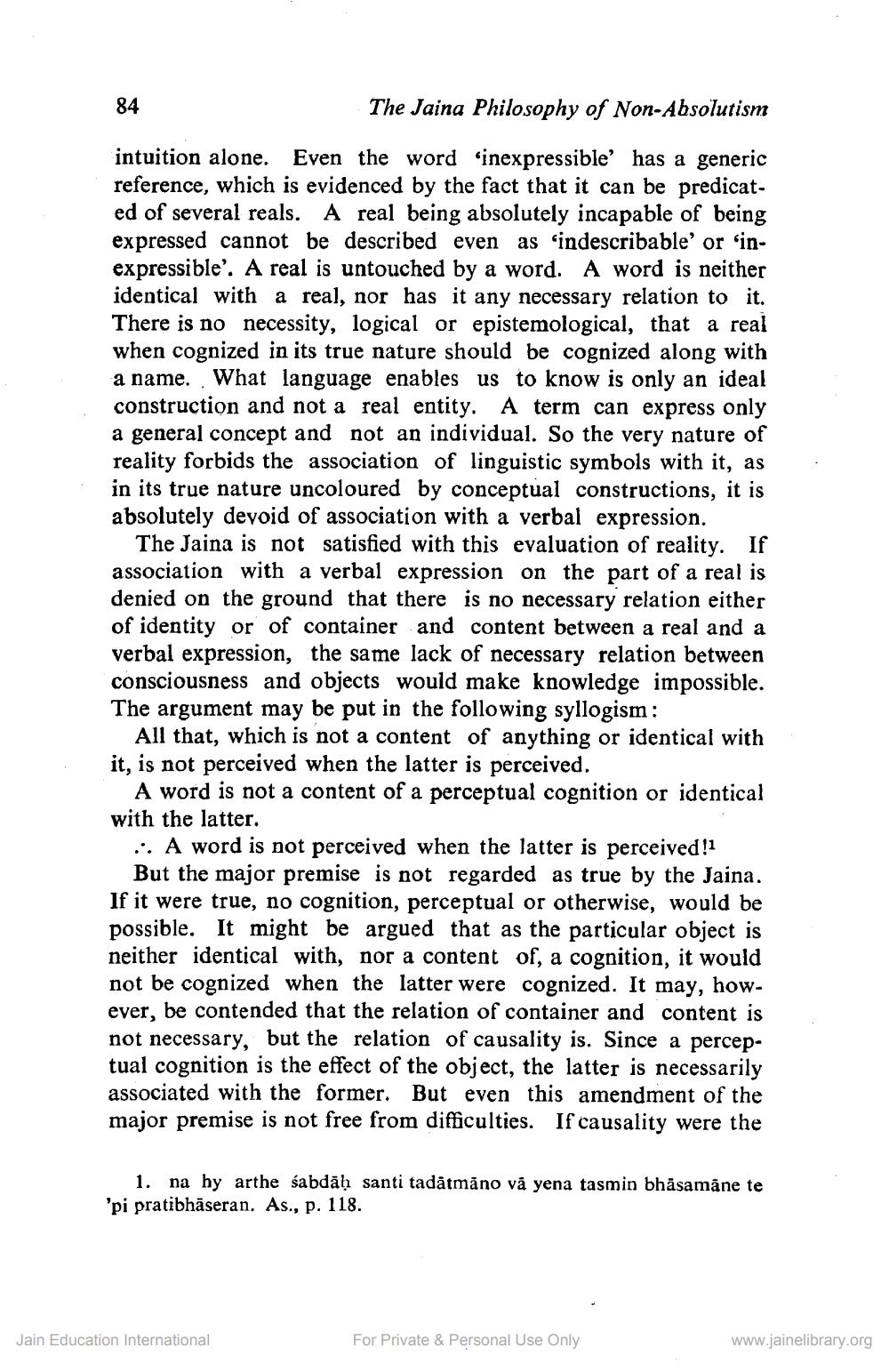________________
84
The Jaina Philosophy of Non-Absolutism
intuition alone. Even the word 'inexpressible' has a generic reference, which is evidenced by the fact that it can be predicated of several reals. A real being absolutely incapable of being expressed cannot be described even as 'indescribable' or 'inexpressible'. A real is untouched by a word. A word is neither identical with a real, nor has it any necessary relation to it. There is no necessity, logical or epistemological, that a real when cognized in its true nature should be cognized along with a name. What language enables us to know is only an ideal construction and not a real entity. A term can express only a general concept and not an individual. So the very nature of reality forbids the association of linguistic symbols with it, as in its true nature uncoloured by conceptual constructions, it is absolutely devoid of association with a verbal expression.
The Jaina is not satisfied with this evaluation of reality. If association with a verbal expression on the part of a real is denied on the ground that there is no necessary relation either of identity or of container and content between a real and a verbal expression, the same lack of necessary relation between consciousness and objects would make knowledge impossible. The argument may be put in the following syllogism:
All that, which is not a content of anything or identical with it, is not perceived when the latter is perceived.
A word is not a content of a perceptual cognition or identical with the latter.
.. A word is not perceived when the latter is perceived !1
But the major premise is not regarded as true by the Jaina. If it were true, no cognition, perceptual or otherwise, would possible. It might be argued that as the particular object is neither identical with, nor a content of, a cognition, it would not be cognized when the latter were cognized. It may, however, be contended that the relation of container and content is not necessary, but the relation of causality is. Since a perceptual cognition is the effect of the object, the latter is necessarily associated with the former. But even this amendment of the major premise is not free from difficulties. If causality were the
1. na hyarthe sabdah santi tadātmāno vā yena tasmin bhāsamane te 'pi pratibhāseran. As., p. 118.
Jain Education International
For Private & Personal Use Only
www.jainelibrary.org




